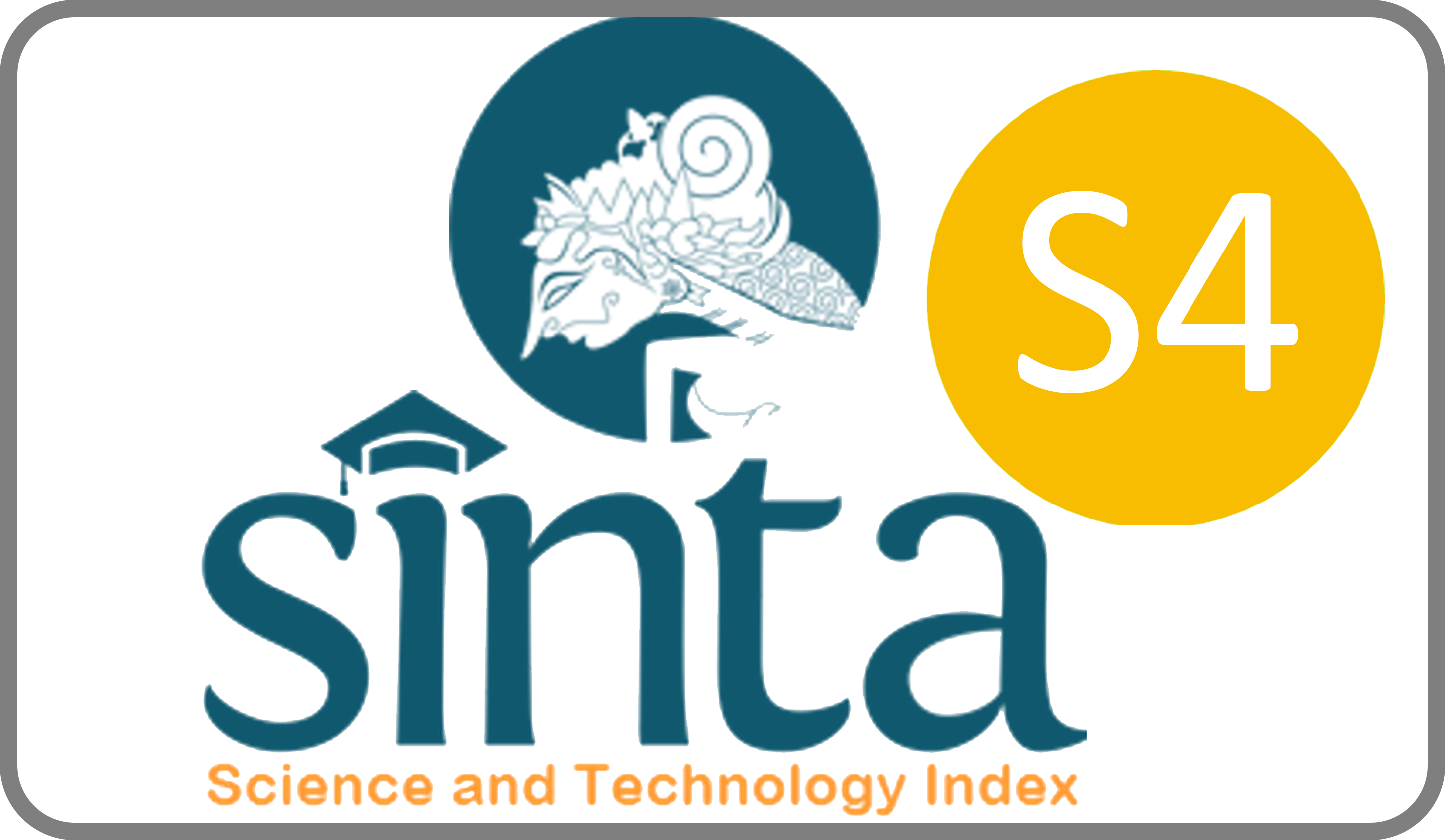KELAS ONLINE UNTUK MENINGKATKAN PENERAPAN PROTOKOL KESEHATAN DI MASYARAKAT SELAMA PANDEMI COVID19
Downloads
Health protocol is one of the main keys in dealing with the spread of the corona virus. The government and health communicators face serious challenges when educating the public to always use masks, keep their distance and wash their hands with soap. Especially in the digital era of information, all people can access information on the internet without limits. The spread of hoaxes and infodemics has further reduced public compliance in implementing health protocols. The purpose of implementing this community service is to prevent the spread of the infodemics so that the public can play a positive role in preventing the transmission of COVID19 by implementing proper health protocols. The community service method was carried out by implementing online classes using the WhatsApp group platform and zoom meetings. The number of participants involved was 112 people. Small discussion always happened every day both among the participants and with the community service team. Information provided to participants in the form of posters / flyers. The online class was held for 3 months starting in July 2020. Measurement of participants' understanding was carried out at the beginning and at the end of the activity through google form. The analysis showed that online class delivery was effective, as indicated by a positive and significant increase in understanding of the variables of masks, maintaining distance and washing hands with soap. So it might be concluded that by providing information intensively and through small discussion, the public will increasingly understand the conditions of the pandemic and will play a role in breaking the chain of transmission of COVID19
abstrak
10.20473/jlm.v5i1.2021.9-18
Open acces under CC BY-SA license
Creative Commons Attribution-ShareAlike 4.0 International License
Protokol kesehatan menjadi salah satu kunci utama dalam menangani meluasnya persebaran virus corona. Pemerintah dan komunikator kesehatan menghadapi tantangan berat saat memberikan sosialisasi kepada masyarakat agar terbiasa selalu menggunakan masker, menjaga jarak dan selalu mencuci tangan dengan sabun. Terlebih di era digital informasi, seluruh masyarakat dapat mengakses informasi di internet tanpa batas. Merebaknya berita hoaks dan infodemi semakin mengurangi kepatuhan masyarakat dalam menjalankan protokol kesehatan. Tujuan pelaksanaan pengabdian masyarakat ini adalah untuk mencegah menyebarnya infodemi sehingga masyarakat dapat berperan positif dalam mencegah penularan COVID19 dengan menerapkan protokol kesehatan dengan benar. Metode pengabdian masyarakat dilakukan dengan pelaksanaan kelas online menggunakan platform whatsapp group dan zoom meeting. Jumlah peserta yang terlibat 112 orang. Diskusi ringan selalu terjadi setiap hari baik di kalangan peserta maupun dengan tim pengabdian masyarakat. Informasi yang diberikan kepada peserta berupa poster/flyer. Pelaksaan kelas online ini dilakukan selama 3 bulan dimulai sejak bulan Juli 2020. Pengukuran pemahaman peserta dilakukan diawal dan di akhir kegiatan melalui google form. Analisis menunjukkan penyampaian kelas online berjalan efektif yang ditunjukkan
dengan peningkatan pemahaman yang positif dan signifikan pada variabel masker, jaga jarak dan cuci tangan pakai sabun. Sehingga dapat disimpulkan bahwa dengan pemberian informasi secara intensif dan melalui diskusi ringan, masyarakat akan semakin memahami kondisi pandemik dan akan berperan dalam memutus rantai penularan COVID19.
Alzyood, Mamdooh, Debra Jackson, Helen Aveyard, and Joanne Brooke. 2020. "COVID"19 Reinforces the Importance of Handwashing.” Journal of Clinical Nursing, May. https://doi.org/10.1111/jocn.15313.
CDC. 2020. "COVID-19 and Your Health.” Centers for Disease Control and Prevention. February 11, 2020. https://www.cdc.gov/coronavirus/2019-ncov/prevent-getting-sick/cloth-face-cover-guidance.html.
Chung, Roger Yat-Nork, and Minnie Ming Li. 2020. "Anti-Chinese Sentiment during the 2019-NCoV Outbreak.” Lancet (London, England) 395, no. 10225: 686–87. https://doi.org/10.1016/S0140-6736(20)30358-5.
COVID-19, Satgas Penanganan. 2020. "Hasil Survei Perilaku Masyarakat Di Masa Pandemi COVID-19 - Hasil Kajian | Satgas Penanganan COVID-19.” Covid19.Go.Id. 2020. https://covid19.go.id/edukasi/hasil-kajian/hasil-survei-perilaku-masyarakat-di-masa-pandemi-covid-19.
Park, Sunhee, Beomsoo Kim, and Jaeil Lee. 2020. "Social Distancing and Outdoor Physical Activity During the COVID-19 Outbreak in South Korea: Implications for Physical Distancing Strategies.” Asia-Pacific Journal of Public Health, July. https://doi.org/10.1177/1010539520940929.
Schünemann, Holger J., Elie A. Akl, Roger Chou, Derek K. Chu, Mark Loeb, Tamara Lotfi, Reem A. Mustafa, et al. 2020. "Use of Facemasks during the COVID-19 Pandemic.” The Lancet Respiratory Medicine 8, no. 10: 954–55. https://doi.org/10.1016/S2213-2600(20)30352-0.
Sharot, Tali, and Cass R. Sunstein. 2020. "How People Decide What They Want to Know.” Nature Human Behaviour 4, no. 1: 14–19. https://doi.org/10.1038/s41562-019-0793-1.
Shimizu, Kazuki. 2020. "2019-NCoV, Fake News, and Racism.” Lancet (London, England) 395, no. 10225: 685–86. https://doi.org/10.1016/S0140-6736(20)30357-3.
Skilton, Nyssa. 2020. "Enhancing Global Health Communication during a Crisis: Lessons from the COVID-19 Pandemic | PHRP.” Https://Www.Phrp.Com.Au/ (blog). June 30, 2020. https://doi.org/10.17061/phrp3022010.
UNICEF. 2020. "Everything You Need to Know about Washing Your Hands to Protect against Coronavirus (COVID-19).” 2020. https://www.unicef.org/coronavirus/everything-you-need-know-about-washing-your-hands-protect-against-coronavirus-covid-19.
WHO. 2020. "Coronavirus Disease (COVID-19).” 2020. https://www.who.int/emergencies/diseases/novel-coronavirus-2019.
JLM by Unair is licensed under a Creative Commons Attribution-ShareAlike 4.0 International License.
1. The journal allows the author to hold the copyright of the article without restrictions.
2. The journal allows the author(s) to retain publishing rights without restrictions
3. The legal formal aspect of journal publication accessibility refers to Creative Commons Attribution Share-Alike (CC BY-SA).
4. The Creative Commons Attribution Share-Alike (CC BY-SA) license allows re-distribution and re-use of a licensed work on the conditions that the creator is appropriately credited and that any derivative work is made available under "the same, similar or a compatible license”. Other than the conditions mentioned above, the editorial board is not responsible for copyright violation.


















